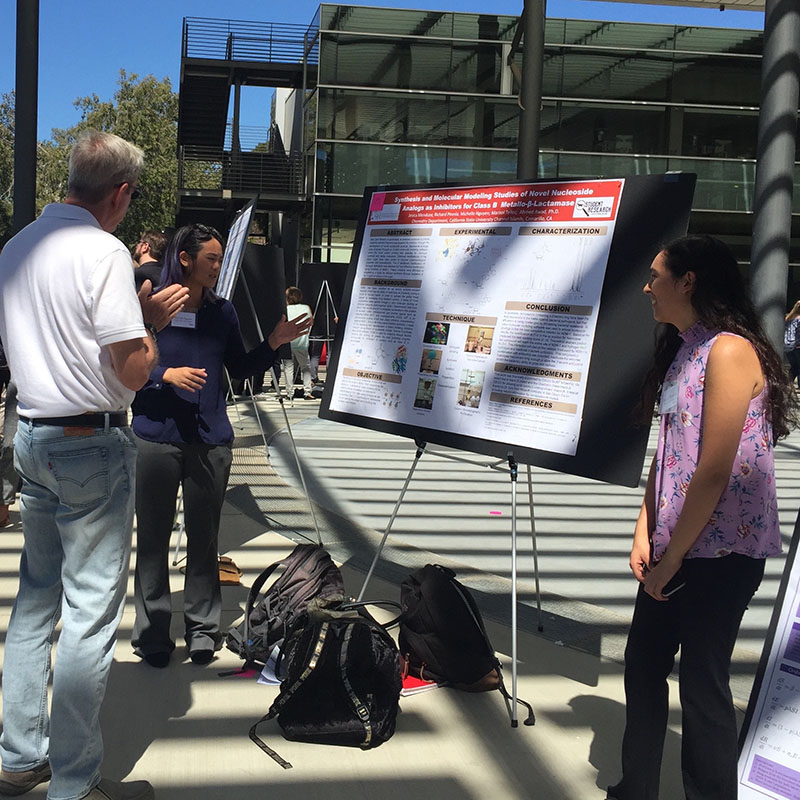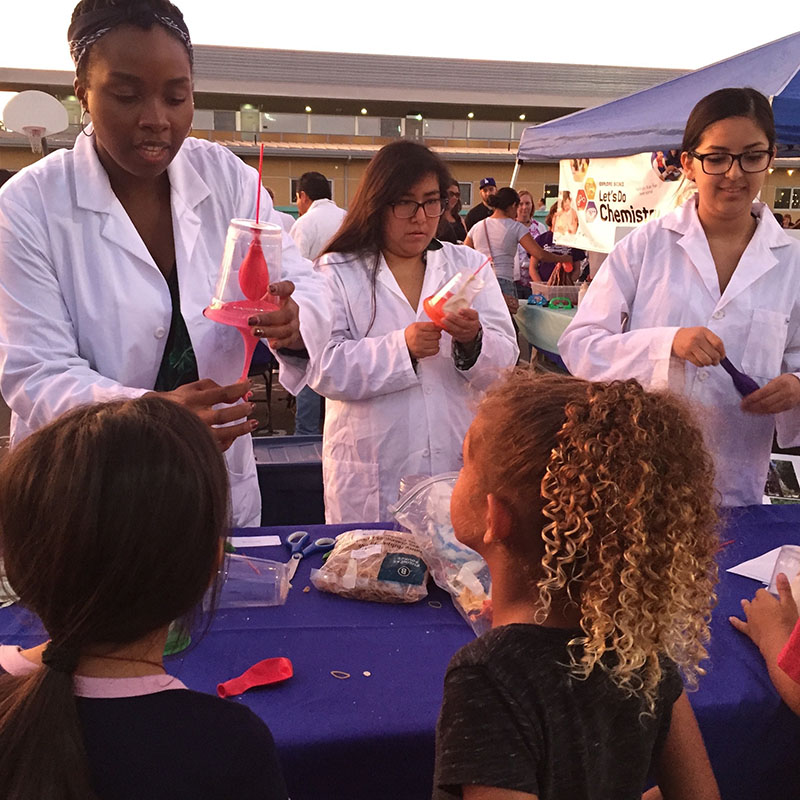 Dec. 17, 2018 — CSU Channel Islands (CSUCI) Biology Lecturer Caryl Ann Becerra, Ph.D., has received $35,000 for a project called “California State University Louis Stokes Alliance for Minority Participation (CSU-LSAMP).”
Dec. 17, 2018 — CSU Channel Islands (CSUCI) Biology Lecturer Caryl Ann Becerra, Ph.D., has received $35,000 for a project called “California State University Louis Stokes Alliance for Minority Participation (CSU-LSAMP).”
LSAMP stands for the Louis Stokes Alliance for Minority Participation program, which is named after the Ohio Congressman who helped to create the program. It is funded by the National Science Foundation (NSF) and the Office of the CSU Chancellor.
The goal of the CSU-LSAMP is to support universities and colleges in diversifying the nation's science, technology, engineering and mathematics (STEM) workforce by increasing the number of STEM baccalaureate and graduate degrees awarded to populations not represented well in the field.
Several of the CSU campuses receive grants with each amount and purpose individualized to fit that university’s needs. Becerra will lead CSUCI’s program, which will center on juniors and seniors.
“We will focus on students already committed to a STEM major,” Becerra said. “My goal is to get 100 percent of them to advance to graduate studies, to earn a master’s or a Ph.D. We will mentor them to graduate with research experience in order to move on to graduate programs.”
Becerra’s cohort of LSAMP fellows is comprised of 25 students she selected based on a variety of factors that support LSAMP’s mission of inclusion and diversity in the STEM fields. The LSAMP fellows are from several STEM disciplines including Chemistry, Physics, Mathematics, Environmental Science & Resource Management, and Biology.
“Most LSAMP fellows are first-generation college students,” Becerra said. “We are encouraging a diverse background of students especially those that are minorities, have disabilities, transfer students, low-income students, and female students. They are all asked to give a short statement about the economic, educational, and social barriers they have faced.”
 Fellows can be reimbursed for science textbooks, apply for mini grants towards research supplies and materials, as well as travel awards to present at conferences.
Fellows can be reimbursed for science textbooks, apply for mini grants towards research supplies and materials, as well as travel awards to present at conferences.
“If they get travel funds to a conference where they are presenting, they come back and share their experience. That opens up the eyes of the newer fellows,” she said.
Some fellows apply for a research stipend to help alleviate financial obligations.
Besides visiting graduate schools, the fellows also attend workshops or seminars every other week to hear from STEM professionals and learn the so-called “soft skills” of entering the professional world of work.
“We teach them how to present themselves at a conference, how to network, or how to recognize if a research lab and research advisor are a good fit, how to persevere, and how to seek help” Becerra said.
“It’s encouragement by example,” she said. “They heard from one female scientist about how after Hurricane Maria, she was able to return to Puerto Rico and co-lead a laboratory team as part of the Infectious Disease and Countermeasures Task Force of the Centers for Disease Control. She demonstrated that you never lose ties with your community and that you can still serve your community as a scientist.”
Other speakers have shared their experiences about their imposter syndrome, what it’s like to work in a lab as a graduate student, finding jobs, and being a first-generation student or a minority. They also talk about balancing family and career and defining their own success and happiness.
“I hope to build a community where the students can reach out to each other for support and encouragement,” Becerra said.
Becerra hopes this group of peers can help one another see that pursuing post-graduate STEM education can open up possibilities for a population of students who may not have realized what their lives and careers can be.
